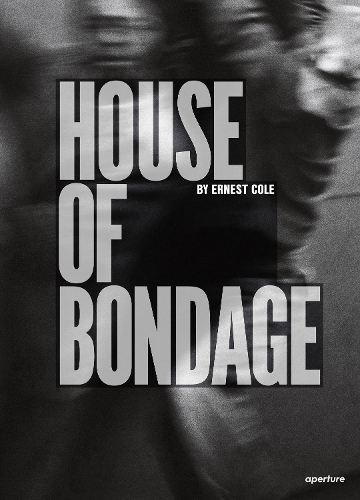
Ernest Cole: House of Bondage
(Hardback)
Publishing Details
Ernest Cole: House of Bondage
By (Author) Ernest Cole
Preface by Mongane Wally Serote
Text by Oluremi C. Onabanjo
Text by James Sanders
Aperture
Aperture
22nd March 2023
United States
Classifications
General
Non Fiction
Photojournalism and documentary photography
Violence, intolerance and persecution in history
Racism and racial discrimination / Anti-racism
305.80096809045
Physical Properties
Hardback
216
Width 213mm, Height 289mm, Spine 23mm
1338g
Description
First published in 1967, Ernest Coles House of Bondage has been lauded as one of the most significant photobooks of the twentieth century, revealing the horrors of apartheid to the world for the first time and influencing generations of photographers around the globe. Reissued for contemporary audiences, this edition adds a chapter of unpublished work found in a recently resurfaced cache of negatives and recontextualizes this pivotal book for our time.
Cole, a Black South African man, photographed the underbelly of apartheid in the 1950s and 60s, often at great personal risk. He methodically captured the myriad forms of violence embedded in everyday life for the Black majority under the apartheid systempicturing its miners, its police, its hospitals, its schools. In 1966, Cole fled South Africa and smuggled out his negatives; House of Bondage was published the following year with his writings and first-person account. This edition retains the powerful story of the original while adding new perspectives on Coles life and the legacy of House of Bondage. It also features an added chaptercompiled and titled Black Ingenuity by Coleof never-before-seen photographs of Black creative expression and cultural activity taking place under apartheid.Made available again nearly fifty-five years later, House of Bondage remains a visually powerful and politically incisive document of the apartheid era.
Author Bio
Ernest Cole (born in Transvaal, South Africa, 1940; died in New York, 1990) is best known for House of Bondage, a photobook published in 1967 that chronicles the horrors of apartheid. After fleeing South Africa in 1966, he became a banned person, settling in New York. He was associated with Magnum Photos and received funding from the Ford Foundation to undertake a project looking at Black communities and cultures in the United States. Cole spent an extensive time in Sweden and became involved with the Tiofoto collective. He died at age forty-nine of cancer. In 2017, more than 60,000 of Coles negativesmissing for more than forty yearsresurfaced in Sweden. Mongane Wally Serote is a renowned South African poet and writer, inaugurated in 2018 as South Africas national poet laureate. Oluremi C. Onabanjo is an associate curator in the Department of Photography at the Museum of Modern Art, New York. The former director of exhibitions and collections for the Walther Collection, New York, Onabanjo has organized exhibitions across Africa, Europe, and North America, and managed one of the most significant private collections of photography in the world. In 2017, she cocurated Recent Histories: Contemporary African Photography and Video Art and edited its accompanying publication, which was shortlisted in 2018 for an ICP Infinity Award in Critical Writing and Research. Onabanjo lectures internationally on photography and curatorial practice, and her writing appears in Aperture, The New Yorker, The PhotoBook Review, Tate Etc., as well as publications by the Art Institute of Chicago; Museum of Modern Art, New York; Rhode Island School of Design, Museum of Art, Providence; and the Studio Museum in Harlem, New York; among others. A 2020 Andy Warhol Foundation Arts Writers grantee, Onabanjo is the editor of the forthcoming photobook Marilyn Nance: Last Day in Lagos (2022). She is a PhD candidate in art history at Columbia University, New York, and holds degrees in visual, material, and museum anthropology from Oxford University, England, and African studies from Columbia University, New York. James Sanders is a journalist, researcher, and scholar. He has written extensively on South African politics, in such books as South Africa and the International Media, 1972-1979: A Struggle for Representation (1999) and Apartheids Friends: The Rise and Fall of South Africas Secret Service (2006). He worked as a research specialist on Anthony Sampsons Mandela: The Authorised Biography (1999), and on numerous documentary films, including Mandela: The Living Legend (2003) and Mandelas Gun (2016). He served as a guest editor of Noseweek and was the founding editor of Molotov Cocktail. Sanders has concentrated his research on the life of Ernest Cole.
